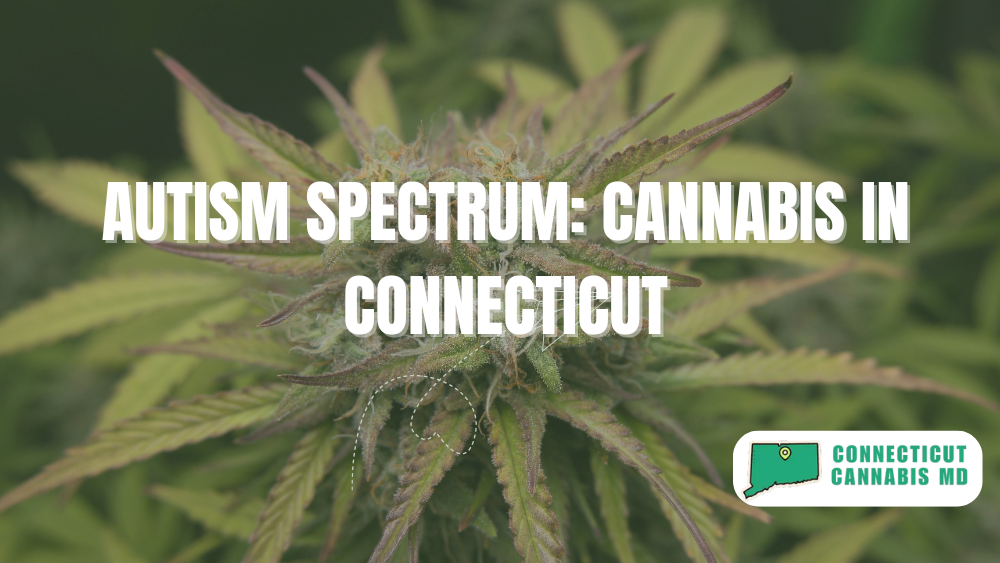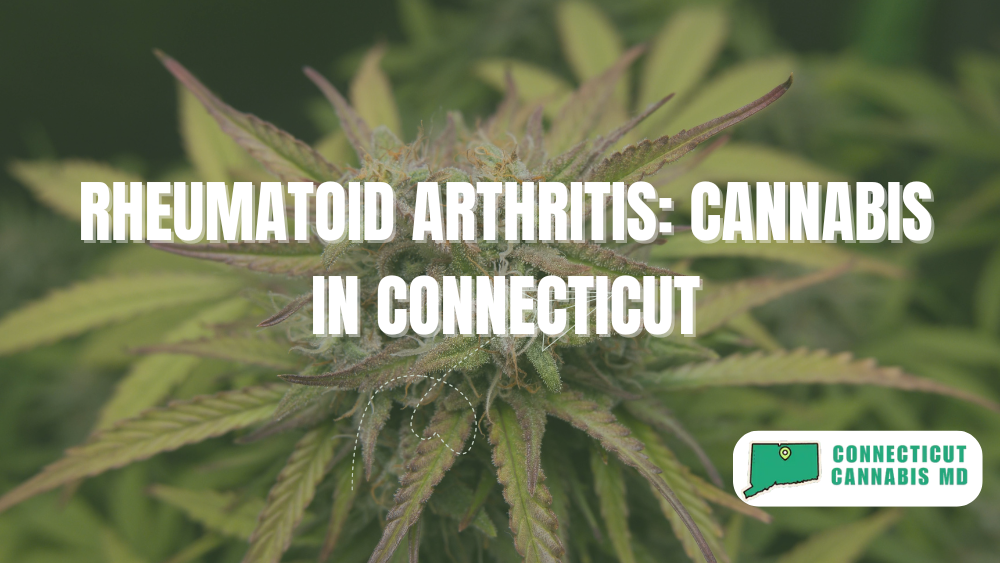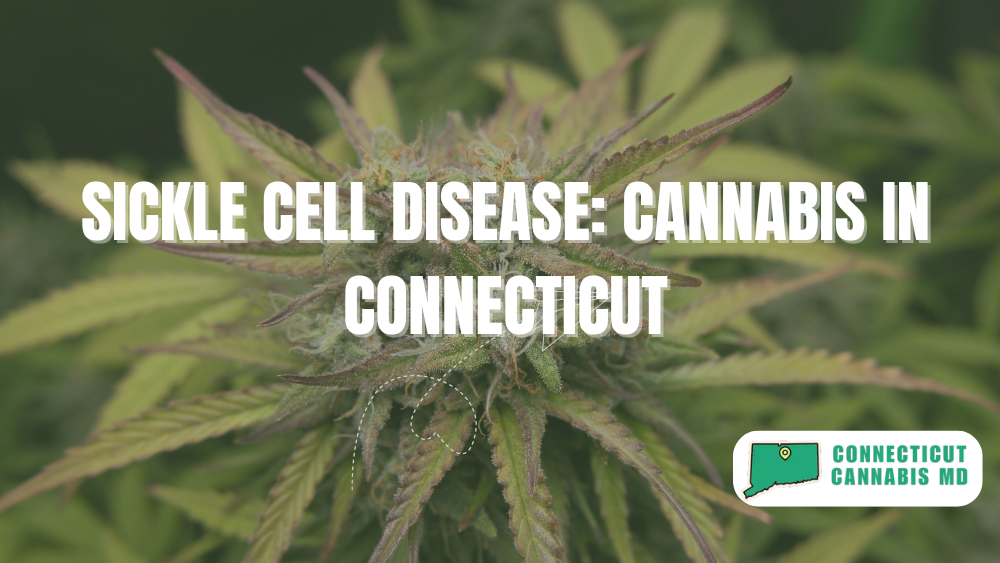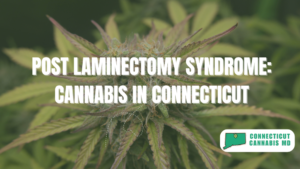Huntington’s Disease (HD) is a rare, inherited neurodegenerative disorder that progressively causes the breakdown of nerve cells in the brain. It leads to a host of physical, cognitive, and psychiatric symptoms, which severely affect patients’ quality of life over time.
Although there is no cure for Huntington’s disease, various treatments are available to help manage its symptoms. One emerging alternative therapy is the use of medical cannabis, which has shown promise in alleviating some of the movement, mood, and pain-related symptoms associated with the disease.
In Connecticut, Huntington’s disease is recognized as a qualifying condition for medical marijuana under the state’s medical marijuana program.
This article will explore the potential benefits of cannabis for Huntington’s disease, explain the process for obtaining a medical marijuana card, and highlight how telemedicine simplifies access for patients.
Understanding Huntington’s Disease
Causes and Symptoms of Huntington’s Disease
Huntington’s disease is caused by a genetic mutation in the HTT gene, which leads to the production of an abnormal protein that gradually damages brain cells.
Symptoms typically begin to manifest in individuals in their 30s or 40s, although they can occur earlier or later. The symptoms worsen over time and include:
- Movement disorders: Involuntary movements (chorea), muscle rigidity, tremors, and difficulty with balance and coordination.
- Cognitive decline: Memory loss, impaired judgment, difficulty in concentrating, and eventual dementia.
- Psychiatric issues: Depression, anxiety, mood swings, and irritability
These symptoms can severely impact the ability to perform daily activities, communicate, and interact socially. As the disease progresses, patients eventually require round-the-clock care and support.
Traditional Treatments for Huntington’s Disease
Currently, there is no cure for Huntington’s disease. Treatments aim to manage the symptoms and improve the quality of life for patients. Medications such as antipsychotics, antidepressants, and mood stabilizers are often prescribed to help control psychiatric symptoms, while physical therapy may be recommended to help with mobility and balance issues.
However, many of these medications come with side effects, and their efficacy may diminish over time. This has led to increasing interest in alternative therapies, including medical cannabis, as a way to alleviate symptoms without the long-term side effects associated with prescription drugs.
How Cannabis Can Help with Huntington’s Disease Symptoms
Alleviating Movement Disorders
One of the most prominent symptoms of Huntington’s disease is chorea, which causes involuntary, jerky movements. Cannabis particularly strains high in CBD (cannabidiol), has been shown to help reduce muscle spasms and calm overactive neural activity.
CBD interacts with the body’s endocannabinoid system, which is crucial in regulating motor functions. By stabilizing these neural processes, cannabis may help reduce the severity of chorea, allowing patients to regain some control over their movements.
Furthermore, medical cannabis can reduce muscle rigidity and improve coordination, making daily activities more manageable for patients who struggle with stiffness and mobility issues.
Managing Psychiatric Symptoms
Huntington’s disease often leads to significant psychiatric symptoms, including depression, anxiety, and mood swings. These symptoms can be just as debilitating as the physical manifestations of the disease.
Medical cannabis, especially CBD-dominant strains, is known for its calming effects, which can help alleviate anxiety and improve mood.
By interacting with serotonin receptors in the brain, CBD helps regulate mood and promote a sense of calm and well-being. This can be particularly beneficial for Huntington’s patients who experience severe depression or anxiety due to the progression of their disease.
Additionally, THC (tetrahydrocannabinol) in small, controlled doses can help lift mood and alleviate symptoms of depression.
Enhancing Sleep and Reducing Pain
Patients with Huntington’s disease often experience sleep disturbances due to pain, involuntary movements, and anxiety. Cannabis, especially strains with higher THC content, has sedative properties that can improve sleep quality.
THC promotes relaxation, reduces muscle pain, and helps patients fall asleep more easily. Improved sleep can lead to better overall health and well-being for Huntington’s patients.
By reducing pain, calming the mind, and promoting better sleep, cannabis can significantly improve the quality of life for Huntington’s disease patients.
Medical Marijuana for Huntington’s Disease in Connecticut
Qualifying for a Medical Marijuana Card
In Connecticut, Huntington’s disease is recognized as a qualifying condition for medical marijuana. This means that patients diagnosed with Huntington’s disease or their caregivers can apply for a medical marijuana card, allowing them to legally purchase cannabis products from state-licensed dispensaries.
To qualify for the program, patients must receive certification from a Connecticut-licensed healthcare provider. The provider will evaluate the patient’s condition and determine whether medical marijuana is an appropriate treatment option. Once certified, patients can move forward with the application process.
The Application Process for a Medical Marijuana Card
The application process for obtaining a medical marijuana card in Connecticut is simple and streamlined. After receiving certification from a healthcare provider, patients can submit their application online through the Connecticut Department of Consumer Protection. The application requires proof of residency, medical certification, and a registration fee.
Once approved, patients receive their medical marijuana card, which grants them access to dispensaries where they can purchase cannabis products tailored to their needs.
Products range from tinctures and oils to edibles and topicals, allowing patients to choose the form of cannabis that best suits their symptoms and preferences.
The Role of Telemedicine for Huntington’s Disease Patients
The Convenience of Telemedicine
For Huntington’s disease patients with mobility issues or difficulty leaving their homes, telemedicine offers a convenient and accessible way to consult with healthcare providers.
Telemedicine allows patients to receive their medical marijuana recommendation without the need for in-person visits. This is especially beneficial for patients in the advanced stages of the disease, as they can avoid the stress and strain of traveling to medical appointments.
With telemedicine, patients can consult with certified healthcare providers online, discuss their symptoms, and receive their medical marijuana certification from the comfort of their homes.
Affordable Telemedicine Consultations
In Connecticut, the cost of telemedicine consultations for medical marijuana recommendations is $179 for new patients, with yearly renewals available for $149. This affordable option makes it easier for Huntington’s disease patients to access the care they need without the added financial burden of frequent office visits.
By reducing the barriers to access, telemedicine ensures that more patients can benefit from medical cannabis as part of their treatment plan.
Benefits of Medical Cannabis for Huntington’s Disease
Reduced Dependence on Prescription Medications
For many Huntington’s disease patients, medical cannabis offers an alternative to traditional medications, such as antipsychotics and muscle relaxants, which can come with side effects or diminish in effectiveness over time.
Cannabis provides a more natural option for managing symptoms, reducing the need for long-term reliance on prescription medications.
Improved Quality of Life
Living with Huntington’s disease can be incredibly challenging, both physically and mentally. Medical cannabis has the potential to improve the overall quality of life for patients by alleviating pain, reducing involuntary movements, improving sleep, and stabilizing mood.
By addressing multiple symptoms at once, cannabis can help patients regain a sense of control over their daily lives.
Many Huntington’s disease patients who use medical cannabis report a greater ability to engage in activities they enjoy, interact with loved ones, and manage their symptoms with greater comfort and ease.
Conclusion
Medical cannabis presents a promising option for managing the symptoms of Huntington’s disease, offering relief from movement disorders, psychiatric symptoms, pain, and sleep disturbances.
In Connecticut, patients can access medical marijuana through the state’s medical marijuana program, with telemedicine making the process more convenient than ever.
If you or a loved one is living with Huntington’s disease, consider exploring medical cannabis as part of your treatment plan.
With the potential to improve both physical and mental well-being, cannabis could provide the support needed to enhance quality of life and manage the challenges of Huntington’s disease.
Call to Action (CTA):
“Interested in discovering how medical marijuana can help manage Huntington’s disease symptoms? Book an online consultation with a certified doctor today and start your application for a Connecticut Medical Marijuana Card.
FAQs
How does cannabis help with Huntington’s disease?
Cannabis helps reduce involuntary movements, alleviate psychiatric symptoms, and improve sleep in patients with Huntington’s disease by interacting with the body’s endocannabinoid system.
Is Huntington’s disease a qualifying condition for medical marijuana in Connecticut?
Yes, Huntington’s disease and associated movement disorders are recognized as qualifying conditions under Connecticut’s medical marijuana program.
How much does a medical marijuana recommendation via telemedicine cost in Connecticut?
Telemedicine consultations cost $179 for new patients and $149 for yearly renewals.
How do I apply for a medical marijuana card in Connecticut?
After receiving certification from a licensed healthcare provider, you can apply online through the Connecticut Department of Consumer Protection.
Can I use telemedicine to get a medical marijuana recommendation for Huntington’s disease?
Yes, telemedicine allows you to consult with a certified doctor online to obtain a medical marijuana recommendation from the comfort of your home.












